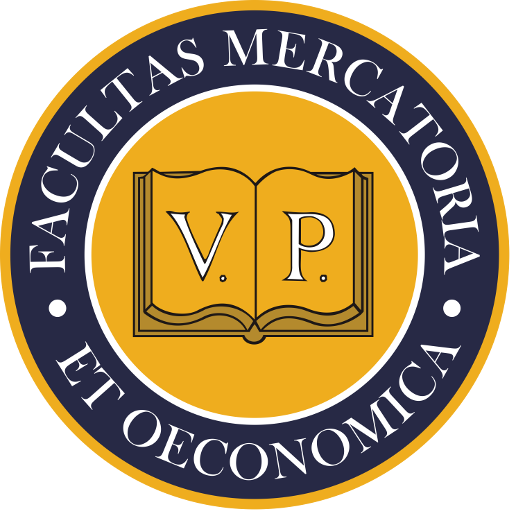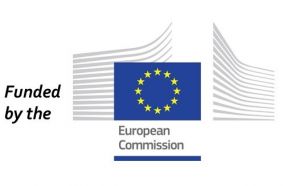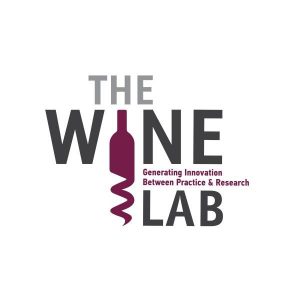Proposal number: 101137131 – Topic ID: HORIZON-WIDERA-2023-ACCESS-03
BEAMING aims to raise excellence by enhancing innovation and knowledge valorisation within the bioeconomy domain through cooperation between higher education institutions, with a particular focus on Widening countries in Central-Eastern (CEE) and South- Eastern European (SEE) EU Member States and the Western Balkans. Improved global competitiveness and visibility of higher education institutions (HEI) will be achieved through establishing effective technology and know-how transfer between Widening countries and EU14 member states with more developed bioeconomies and R&I ecosystems, exploring and adopting structural reforms, educational priorities, and a culture of excellence. The BEAMING Alliance works towards 7 Specific Objectives: 1) Build the capacity of earlycareer researchers in all aspects of bioeconomy research; 2) Facilitate the reform of institutional practices and policy frameworks towards excellence; 3) Foster networking, knowledge exchange, and cross-disciplinary collaboration by establishing sustainable Communities of Practice; 4) Design joint research and innovation strategies and launch joint research projects; 5) Design a complex portfolio of activities for adopting Open Science practices; 6) Strengthen the valorisation of research results by increasing tech transfer capacity; 7) Support the participating institutions to move towards inclusive institutional culture, including gender equality.
Proposal number: 101113015 – TOPIC ID: HORIZON-MISS-2021-OCEAN-02-02
DAnube WETlands REStoration (DaWetRest) Lighthouse is designed to develop and demonstrate (pilot) concrete solutions applied on the Danube basin to address the challenges faced by its inland and coastal wetlands ecosystems’, namely on (i) biodiversity, (ii) water quality and availability, (iii) climate resilience and/or neutrality and (iv) socio-economic benefits for the local communities. These transformative and innovative solutions will be validated by local communities and main Regional and European-wide stakeholders. The DaWetRest project aims at the systemic restoration of the Danube’s aquatic habitats and floodplains. The goal of the project is to restore and preserve the ecosystems along the upper, middle, and lower sections of the Danube. This includes investigations of the riverbed, soil analyses, water quality assessments, as well as examining the impact of socio-economic activities on the river and the river’s influence on social and economic processes. The planned activities are being carried out in close cooperation between the Faculty of Business and Economics and the Faculty of Engineering within the framework of the project.
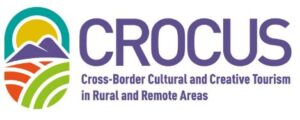 Development of rural and remote areas is a strategic priority for the EU, as can be seen from the the European Commission’s long-term Vision for the EU’s Rural Areas (2021). The vision recognises that many rural and remote areas suffer from problems such as an ageing population, out-migration, poor skills, and low incomes – but at the same time these areas are also rich in cultural heritage. In line with the Commission’s strategy for making tourism more sustainable (2022), cultural and creative tourism is seen as a possible means to address the challenges of rural and remote areas. This resulted in a topic within the Horizon Europe programme, Fostering socio-economic development and job creation in rural and remote areas through cultural tourism (HORIZON-CL2-2023-HERITAGE-01-05) which also put particular emphasis on the importance cross-border collaboration and the possible role of the four EU macro-regions. CROCUS is funded on the basis of this call for project proposals.
Development of rural and remote areas is a strategic priority for the EU, as can be seen from the the European Commission’s long-term Vision for the EU’s Rural Areas (2021). The vision recognises that many rural and remote areas suffer from problems such as an ageing population, out-migration, poor skills, and low incomes – but at the same time these areas are also rich in cultural heritage. In line with the Commission’s strategy for making tourism more sustainable (2022), cultural and creative tourism is seen as a possible means to address the challenges of rural and remote areas. This resulted in a topic within the Horizon Europe programme, Fostering socio-economic development and job creation in rural and remote areas through cultural tourism (HORIZON-CL2-2023-HERITAGE-01-05) which also put particular emphasis on the importance cross-border collaboration and the possible role of the four EU macro-regions. CROCUS is funded on the basis of this call for project proposals.
CROCUS argues that if cultural and creative tourism are to play a bigger role in making rural and remote areas more resilient, three key challenges and associated knowledge gaps must be overcome:
- place-specific business models that suit different types of cultural heritage and community needs must be created
- tourism development must be balanced and sustainable
- policies at different scales should support cooperation between rural and remote areas.
CROCUS addresses these knowledge gaps by:
- generating knowledge about which CCT business models are most appropriate for different types of heritage and rural areas
- creating eight cross-border living labs in which sustainable CCT business models will be prototyped (16 business models in total)
- developing macro-regional and cross-border policy scenarios for each of the four EU macro-regions (Baltic Sea, Adriatic and Ionian, Alpine, and Danube)
- synthesising knowledge and experience from the project to create tools and resources that RRA across Europe and beyond can use to develop sustainable and inclusive CCT in the future.
The project features a multi-scalar research design, innovative cross-border living labs, and participatory processes for sustainable business model prototyping. The consortium includes leading scholars and practitioners with extensive experience in cross-border tourism development, stakeholder engagement, and policy analysis. CROCUS represents the first systematic study of cross-border CCT cooperation in RRA.
Ten partners from eight countries are involved in the implementation of the project.
For more information about the CROCUS project, please visit:
Wroclaw Business University of Applied Sciences, together with 6 partner universities from Hungary, the Czech Republic, Georgia, Turkey and Azerbaijan, implemented the Erasmus Mundus Design Measures program.
Implementation period: from September 2022 to the end of November 2023 (15 months).
The aim of the program was to prepare Erasmus Mundus Joint Master Degree and be ready to launch it in the upcoming academic years. Together with partner universities: University of Pannonia – Faculty of Business and Economics (Hungary), European University Tbilisi (Georgia), College of Polytechnics Jihlava (Czech Republic), Alanya HEP University (Turkey), Batumi State University (Georgia) and Baku Engineering University (Azerbaijan), we obtained EU-funded support within the ERASMUS-EDU-2022-EMJM-DESIGN call, for the creation of unique master’s studies „Slow Tourism Management”. The project also resulted in the improvement of the teaching and organizational potential of our universities, openness to wider cooperation with foreign and domestic entities, as well as didactic innovations and improvement of the degree of internationalization and competitiveness of our universities.
Main Objective: Cooperation in order to establish and run “training hotels” as training environments to develop tourism undergraduates´ hospitality skills
Specific Objectives:
- To create a “training hotel” based on the principles of a real hotel.
- To design and build the infrastructure and facilities of the “training hotel” focusing mainly on three areas, as follows:
- hotel information systems,
- intercultural digital marketing,
- sustainable development.
- To create curricula and electronic educational materials based on the Design Thinking method.
- To create an international network of the “training hotels” involved in the project with the intention of extensive cooperation.
Project Description: The project responds to the dynamically changing and extensive expectations of the labor market towards the graduates of tourism study programmes. The rapid development of digital technologies, the process of globalisation and the increasing need to act in an “eco-friendly” way in post-covid era get tourism undergraduates into educational situations in which they have to address challenges in the best possible way to be prepared both professionally and personally to be a great asset to the society. The idea of the presented project-plan has emerged from the need to create a kind of business training environment for implementing professional activities similar to the real conditions and circumstances of practice in the field of hospitality and tourism. The training environment will have the form of a fictional hotel fulfilling a dual function of professional and educational nature. The main aim of the creation of a training workplace for students of relevant study programmes in the field of tourism is to deepen important and necessary professional skills – hard skills and competencies. Besides, thanks to the collaboration of many students and educators, the “training” hotel will also represent an environment for developing personal skills – soft skills and transversal competencies. The main intention of practice hospitality skills within the “training hotels” is to find adequate answers to the following questions, to which we will refer as the “Six How To…´s”:
1a. How to integrate information technologies in hotel management systems?
1b. How to use property management systems in given environment?
2a. How to build intercultural digital marketing?
2b. How to communicate with employees and with customers from different cultures?
3a. How to develop a sustainable hotel?
3b. How to reduce the ecological footprint of the hotel
https://skipperproject.eu/about/
The SKIPPPER – ‘Skills Portfolio of Personal Development’ project funded by the European Union has been launched from 30th of December, 2022.
The European Union provides a grant of EUR 400 000 for the implementation of the project for the period: 30th December 2022 – 29 th March 2025.
The Partnership:University of Pannonia (coordinator, Hungary), Wrocław University of Economics (Poland), Menat BV. (The Netherlands), Learning Innovation (Hungary), University of Ljubljana (Slovenia).
Our project is aimed at creating a Skills Portfolio of Personal Development (SKIPPER) for students that contains their achievements during the university years in a way that both curricular and extra-curricular activities are recognised. In order to make the Portfolio useful and part of the everyday practice of higher education institutes, we will assess the skill mismatches and we will promote the skills development to ensure that students, universities understand the necessity of the improvement of skills. We plan to do this within a consortium of members with considerable amount of experience in the fields of competence measurement, skill development and higher education.
This goal encompasses the following 4 specific objectives:
1, Assessing the gap between the competencies/skills developed by higher education institutions and the skills expectations of the labour market.
2, Establishing a Skills Matrix containing the key skills required from graduates, identified by desk research and stakeholder feedback.
3, Developing a Skills Portfolio, a gamified digital tool incorporating curricular and extra-curricular learning pathways that contribute to students’ skills development
4, Devising a Skills Passport based on the Skills Portfolio, serving as a diploma supplement to graduates, providing an objective depiction of their skills.
https://greencoolproject.eu/hu
The GreenCool – ‘Let me influence your green self! – Skill development in the encouragement of mindset towards environmental awareness and sustainable development in the alliance of ECoC’ project funded by the European Union has been launched from 28th of February, 2022. The European Union provides a grant of EUR 336,503 for the implementation of the project for the period: 28th February 2022 – 28 th October 2024. The Partnership: University of Pannonia (coordinator), Militos Consulting S.A., Vytautas Magnus University, West University of Timisoara, University of Tartu
The general goal of the project is to develop environmental awareness among university students and to spread the thought of sustainable development among the widest possible age groups at events that attract large audience. We committed to develop an innovative online course material and to mainstream sustainable development in all curricula for higher education students. Recognizing the convincing power of young influencers, the project aims to reach out to all age groups of audience at cultural events and festivals in the various European Capitals of Culture to encourage environmentally conscious activity and to be active members and beneficiaries of sustainable development. Furthermore our goal is to equip students with communication tools and sustainable attitude to become effective advocates for advancing EU green economy and culture.
This objective encompasses the following specific objectives:
- Greenfluence Practice Collection and Research: methodological framework for implementation by exploring influencer tools and techniques and communication channels through youth can be approached in the 21st century.
- Developing the Massive Online Open Course: course curriculum-design and development of material in two platforms.
- Blended ECoC Greenfluencer Pilot Course on national level: the outcome of the course is a participation in an ECoC event/festival, where students can try and test their knowledge and influence audience offline.
- Blended ECoC Greenfluencer International Course: the best 4 students and 2 lecturers from each university are entitled to be present at the final Greencool ECoC event in Tartu.
Innovative Aspects of the Project
The innovative character of the project can be discovered in the following milestones:
- Integrating technological developments into education and knowledge share.
- Influencers are considered as driving force behind new initiatives and movements. Using influencers, university students as green ambassadorsis also an innovative and creative way of reaching the target group, and so have greater impact.
- The influencers can connect easily with their followers (their audience), therefore they are able to increase awareness and drive action among their followers. It seems innovative to try out of 21st-century influencer techniques offline, using online technology in offline environment.
- The other innovative aspects that the university project partners are all potential European Capital of Culture in the next three years. Their university and city (ECoC) values and challenges bond them together as they all focus on integrity, community, engagement, sustainability, heritage, innovation, awareness of diversity.

The project aims:
The main aim of the project is to support universities and academics in distance learning by developing solutions that will improve the quality of this type of education in a sustainable way. The problems experienced in the aftermath of the Covid-19 pandemic have exposed a number of weaknesses in the higher education system. This stems from weaknesses in the system in three areas:
- hardware and equipment (outdated infrastructure, poor Internet connection, overloaded networks, too many users in the same time);
- skills of academic teachers in using modern technologies;
- student behaviour – students often behave unethically during distance learning, making it impossible to assess their level of knowledge and skills.
The innovative nature of the project is reflected in its efficient and effective use of digitalisation to assess students’ competences, demonstrate knowledge and reliably evaluate the skills acquired by students. The application is a blend of different experiences in the field of distance learning, which includes the use of good and reliable solutions in this field, mainly from Scandinavian countries (Finland).
Target groups of the project:
Three main groups of project participants can be distinguished:
Decision-makers representing universities – universities will be provided with a modern digital platform to support distance learning, curricula to prepare teachers and support effective teaching, and a tool to monitor learning outcomes remotely. Decision makers will be involved as experts in the needs assessment phase of the project and in the dissemination and maintenance of the project results.
University lecturers – develop their knowledge and skills in distance learning. They are given the right tools to support the teaching process, giving them greater confidence and new opportunities to make their classes more attractive. They will be involved in primary research, in the development of a competency matrix for the selected professions, in testing the solutions with different groups of students, in communicating the results and in their long-term use.
Students – the opportunity to participate in more attractive distance learning. Competence profiles will make them better prepared for entering the labour market and ready to have their skills properly assessed – participation in primary research and testing.
Indirectly – employers and practitioners in the selected fields – participate in the development of competence profiles by giving their views.
It is assumed that at least 2000 people will benefit from or to some extent be targeted by the project activities and results. Of these, at least 1,000 will be directly involved in the project, namely a group of 600 students in the primary research (at least 100 in each country), 80 academic staff (including decision-makers, lecturers and administrative staff in higher education) and 300 participants in dissemination activities. Indirect participants are those who will be informed of the activities and results of the partnership through the various communication channels. In this way, around 1200 people will learn about the project or benefit from its results.
Partners: Wroclaw University of Economics and Business – Poland, University of West Attica – Greece, Eduko – Kouvola Vocational Institute Ltd. – Finland, University of Pannonia (Faculty of Business and Economics
Project results:
IO1: Tool for remote assessment of competencies of students of selected fields of study (01.06 2021 – 31.08.2022)
Responsible partner: Wroclaw University of Economics
The main objective of the qualitative research was to identify the competences needed and their strengths in the fields of specialisation selected and taught by the project participants. The data collected will be used to develop a tool that can be used in distance education and will be suitable for the remote assessment of students’ competences.
The two main target groups of the research:
- Academics in the higher education/vocational training sector – and those responsible for the sector, who interact with the business environment and are responsible for determining the outcomes of education.
- Practitioners – persons in a managerial position responsible for recruiting employees, assessing employees’ competencies and their level, and planning employee development.
Selected fields of study:
- Economic analysis
- Management
- Tourism
- Automotive
IO1 has been completed as planned.
Research results:
Two types of research were completed in the first phase of the project:
- Qualitative primary research in the form of individual in-depth interviews with experts specialised in the fields indicated (economic analyst, management, tourism, automotive). The research took place between November 2021 and February 2022. During the period 40 interviews (IDIs) were conducted with academics and professionals to identify the competences required.
- Quantitative primary research in the form of a questionnaire survey (PAPI) on a sample of university students in selected fields of study and adult education students (in Finland). The research took place in the period October-December 2021. During the epriod 600 completed questionnaires were processed and analysed by the researchers to map competences. During the survey, 4-5 job areas were selected per field of study, whose competence needs were mapped. Based on the results of the research, a competency matrix is used to develop modules on the specific professional knowledge and skills required in the field of study. The research has identified specific job functions per field of study, for which 4 levels of competences have been formulated to ensure a high level of performance.
The results are summarised in an expert analysis, which available here >>>
Tool for the comprehensive assessment of competency levels – Application guide >>>
Access to English version access to applications for competency assessment >>>
IO2: Modern e-learning courses with training materials for academic teachers (01.10.2021 – 31.12.2022)
Responsible partner: Eduko (Kouvola Vocational Institute Ltd.)
In the wake of the Covid19 pandemic, e-learning has become the foundation of education. It promotes learning flexibility, develops students’ skills in using digital applications and prepares them for active work in a remote environment.
As part of the intellectual outcome, templates for e-learning courses that are attractive to young people and appropriate to the level of higher education will be developed by subject area, and a sample of a ready-made course will be prepared. A manual and an instructional video will be produced for university lecturers, showing how to prepare such a course.
In the framework of the project, with EU support, the partners have signed a one and a half year subscription agreement to use the Norwegian-developed digital online platform “Itslearning” (https://itslearning.com/global/), which will allow 300 students to try the system at each partner university. The IO2 project component includes training in the use of the “Itslearning” platform and didactic training in the preparation of distance learning materials. The training sessions were conducted online by the partners and the teaching material was prepared by the Finnish partner.
Manual for e-learning design >>>
IO3: A tool for remote verification of the learning outcomes of students (01.01.2022 – 28.02.2023)
Responsible partner: University of Pannonia (Faculty of Business and Economics)
In recent years there has been a growing demand for distance learning. This is not surprising, as the ever-accelerating pace of life forces people to plan their time as efficiently as possible. The most important and problematic issues arising from these circumstances include maintaining motivation and monitoring learning outcomes through distance learning. It is therefore essential to develop a solution that helps to assess students’ actual knowledge and their ability to apply it in practice, and to measure competences.
Continuous assessment is important for both teachers and students, as it indicates which skills or competences the student needs to develop. This in turn helps to focus more attention on certain elements in the teaching process.
Compared to traditional education, e-learning is mainly self-directed learning. It also requires more time for feedback from instructors and the communication channels are often different. It is therefore important that students can self-assess their skills and knowledge and use a tool that allows for self-monitoring. It is preferable to use a system that provides gamification tools to allow students to assess their progress, for example by moving on to the next level/phase of the game. Students, individually or in groups, will be able to join different games in real time or by progressing to the next level. The games should give a sense of belonging to a group/learning community and provide a sense of continuous competition (including teamwork/collaboration) and the desire to win (or simply to score points) thanks to newly acquired knowledge. Thanks to gamification, students will develop their skills and competences, and when they move to a higher level, the instructor can be sure that the teaching and didactic materials have been effective.
To explore the possibilities of gamified accountability, the partners will carry out two types of research:
- IDI: 40 students will be interviewed in person about their gaming habits (which computer games, online games they prefer and which social or point-scoring games they like to play).
- FGI: 4 groups of teachers gather their ideas and experiences on gamification in a focus group.
How to assess properly?
Regarding to the project’s intellectual output, our aim was to create a properly based and up-to-date assessment method. As proper assessment is crucial in any type of learning, it is a must to get familiar with opinions related to it. Therefore we started our work with a qualitative research in order to identify the games, tests and/or assignment types that are preferred and used in higher education. We also collected past experiences and best practices from the target groups.
To gain deeper knowledge in this topic, the following issues were discussed with the most important members of higher education, students and lecturers:
- the importance and forms of assessment;
- known used and preferred assessment methods;
- gamification;
- evaluation of different assessment methods.
The data collection methods were adapted to the needs of the target group, therefore focus group interviews were organised in case of the lecturers and individual in-depth interviews with students.
Game design
The assessment planned in the frame of the project is a simple board game-like one. The chosen type is the “Trivia Challenge”. A show-style game was created where players must answer questions about various aspects of the subject. The game can include a variety of question formats, such as simple choice, multiple choice, and true or false.
The game is designed to be used for three main reasons, these are considered as three main game-modes:
- Placement test: to be performed at the beginning of the course in order to measure the entry level;
- Self-test: students can check their progress at any time during the course. The self-test is meant to encourage continuous learning;
- Final test: in this case the game-shape test can be conducted at the end of the course to assess the learning outcomes, and may also be treated as an exam.
The board
The basic board is the same in every game-modes. It is a map of Europe showing different towns – these are the steps/fields, where questions can be addressed. This shape has the potential to create an own story behind according to the exact subject or topic the teacher wants to use it for.
However, the board itself can be slightly modified by the teacher: fields (towns) can be added, removed, or repositioned. The place where the player stands is represented by a horse – it will move according to the student’s progress.
The main advantage of this game is that it is easy: it is easy to use (by students) easy to edit (by teachers and lecturers) and easy to adapt to any given subject. Teachers and lecturers can also benefit from its different game modes: at the beginning of the course the game helps to spot the weakest points in the students’ knowledge by creating easy-to-analyse cobweb diagrams. During the course it can be used as a possibility to practice and as a test for the student to see how far he/she approached. At the end of the course, the third game mode can replace other assessment methods.
As part of the project, an interactive site has been created to allow instructors to safely test students’ knowledge even if they do not appear in person for the exam. The exam questions can be freely uploaded by the lecturer and the topic can be changed. The game is called:
Game of Towns
Available here in Hungarian language: https://intern.gtk.uni-pannon.hu/got
Partners’ own language games:
- Polish: https://intern.gtk.uni-pannon.hu/gotpl1
- Finnish: https://intern.gtk.uni-pannon.hu/gotfin1
- Greek: https://intern.gtk.uni-pannon.hu/gotgr1
Dissemination
- Workshops
- Seminars
- Leaflets
- Newsletters
- Questionnaires
Contact:
Dorota Kwiatkowska-Ciotucha – Project Manager (dorota.kwiatkowska@ue.wroc.pl)
Main Project Office: Uniwersytet Ekonomiczny mi Wrocławiu – Sekcja Obsługi Projektów Rozwojowych
ul. Komandorska 118/120 53-345 Wrocław Poland
Project Facebook site: https://www.facebook.com/thefutureprofessionals
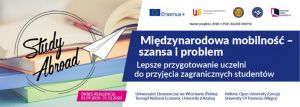 The main goal of the project is to better prepare the University for the Internationalization Process.
The main goal of the project is to better prepare the University for the Internationalization Process.
Two target groups of the project may be indicated:
- Universities understood as their administrative, scientific and didactic employees;
- students studying at foreign universities (young people pursuing full diploma program within a foreign university and students taking part in the curricula program as part of international mobility).
We plan that, directly or indirectly, the activities organized as part of the project and the results will benefit or will be the goal of these activities, including 1870 people:
among them will be minimum 870 people directly involved in the project, i.e. a group of 400 students invited to primary research in the project (including 200 students studying at universities in the home country and 200 foreign students), 200 university employees (including decision-makers, administrative employees and teaching staff), 270 participants of dissemination activities carried out in the project – seminars in Poland, Greece and Hungary and a dissemination conference in Poland (university employees, local decision makers, employees supporting students, such as career offices, representatives of student organizations, foreign students);
indirect participants of the project will be people who through the various information distribution channels will learn about the activities carried out in the project and the results developed by the partnership.
The project includes 5 international project meetings, two in Poland (first and last) and one in each of the other partner countries.
The result of work:
IO1. Manual for the university: How to prepare for the reception of a foreign student? (leader: WROCŁAW UNIVERSITY OF ECONOMICS)
- the first steps will be taken to develop O1 Manual for universities, followed by EU good practices. Report based on the secondary data;
- preparation of research tools for primary research;
- reports from primary research – survey of foreign students and university employees – both administration and teaching staff;
- testing the solution on the target groups;
- introducing the necessary modifications resulting from the testing stage;
- the final version of the manual.
The manual in five languages are available here:
IO2. Manual for a foreign student: What should I know before I go to a foreign study / foreign exchange? (leader: PANNON EGYETEM)
- analysis of conclusions resulting from desk research and primary research from the first result;
- development of research tools allowing for taking into account the wide context of students studying at foreign universities;
- testing the solutions on target groups;
- introducing necessary modifications resulting from the testing stage;
- final manual version.
The manual in five languages are available here:
IO3. Syllabus and didactic materials for trainings for universities’ administrative staff preparing for servicing foreign students (leader: HELLENIC OPEN UNIVERSITY)
- preparation of syllabuses and training materials;
- testing of trainings on a group of administrative employees of all partner universities;
- introduction of possible corrections resulting from the testing stage;
- the final version of training.
Partnership:
Wrocław University of Economics, Poland – Project Coordinator
Hellenic Open University, Greece
Ternopil National Economic University, Ukraine
University of Pannonia, Hungary
Contact:
Dorota Kwiatkowska-Ciotucha – Project Manager (dorota.kwiatkowska@ue.wroc.pl)
The Main Project Office: Uniwersytet Ekonomiczny we Wrocławiu – Sekcja Obsługi Projektów Rozwojowych
ul. Komandorska 118/120 53-345 Wrocław PolandProject`s results – three Intellectual Outputs:
Intellectual Output 1: Manual for the university: How to prepare for the reception of a foreign student?
Intellectual Output 2: Manual for a foreign student: What should I know before I go to a foreign study / foreign exchange?
Intellectual Output 3: Syllabus and didactic materials for trainings for universities’ administrative staff preparing for servicing foreign students.
Project`s results – three Intellectual Outputs:
- Intellectual Output 1: Manual for the university: How to prepare for the reception of a foreign student?
- Intellectual Output 2: Manual for a foreign student: What should I know before I go to a foreign study / foreign exchange?
- Intellectual Output 3: Syllabus and didactic materials for trainings for universities’ administrative staff preparing for servicing foreign students.
Available questionnaires:
Newsletters:
The National Laboratory for Climate Change will be set in close cooperation between the University of Pannonia and the Research Centre of Ecology. The laboratory will carry out multidiscliplinary research projects under the supervision of the steering board. The major focus will be on specific climate-forcing agents and on the impacts of climate change on the atmosphere, hydrosphere and biosphere, as well as on economy and societies. In addition, methods of technological, economic and social adaptation and mitigation will also be in the focus of our R&D activities.
The impact of climate change on economic and business life
Nowadays climate change is a key issue and one of the biggest challenges for sustainable development. Hungary is gradually moving to a low-carbon economy taking into account issues such as economic competitiveness and growth, social welfare, fighting against poverty and climate protection.
The sub-project titled „The impact of climate change on economic and business life” examines the social and economic effects of climate change from specific aspects such as local economic development and food waste, levels of corporate social responsibility (CSR), individual consumption (lifestyle, attitude) and responsible marketing. The sub-project gives context to Hungarian indicators according to EU member states (EU SDG).
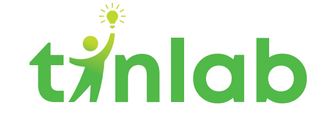
The objectives of the Laboratory will be achieved simultaneously at two levels: on the one hand, focus would be on developing a horizontal framework and methodologies; on the other hand, forums around specific topics would generate new research and innovation projects with a participatory approach.
The initiative can also generate rapid development and achievements in the area of human-centered development and penetration of new technologies in a relatively short period of time. Although there are good practices in the EU countries and also national frameworks in some countries, Hungary can become a front-ranker in the area of social innovations, and thereby supporting, among other things, the preparation of relevant topics of the Horizon Europe Program and a much more successful national participation in the Program.
Social innovation is the development and implementation of new ideas (products, services, processes), which:
– aim to improve well-being and quality of life,
– respond to social needs,
– establish new social relationships and cooperation,
– are innovations that do not only benefit society but also strengthen the active participation of citizens.
This definition-framework ensures the feasibility of the proposed projects, which can be tested in several dimensions. It is already clear that the ‘city as a laboratory’ approach plays an important role in realizing the thematic focus.
Possible areas of the Laboratory theme include, but are not limited to:
1. Health, demographic change and wellbeing
2. Digital transition and related societal challenges
3. Food production and security, sustainable agriculture, bioeconomy
4. Clean, efficient and secure energy
5. Smart, green and integrated transport
6. Climate change, environmental protection, resource efficiency and raw materials, circular economy
7. Inclusive, innovative, reflective and cooperative societies and communities
8. Secure societies – protecting the security of Europe and its citizens.
Fitting into the topics above, possible development areas could be, but not limited to:
– Multidisciplinary innovations for social change and smart societies
– Social Innovation Solutions for Early Childhood (0-12)
– Cognitive design on neuromarketing based art
– “The City of the Future, the University of the Future”
– Innovative management of the social impact of digitalization
– Cooperative Communities
– Consumer Protection in the Age of Digital Consumption
– Establishment of a developmental framework for social enterprises
– Social innovation projects for the development of rural areas
– Innovative solutions to socio-economic challenges generated by a crisis (eg. epidemiological emergency)
– Environmental social innovations
– Developing new forms and tools of governance, etc.
The National Laboratory for Social Innovation project should model a professional framework and a sustainable process that is operational in the long-term and extendable. The developed framework should enable the spread of the lab network itself, as well as spread of social innovations resulting from the tests and developments of the Laboratory.
EU project The Wine Lab – Generating Innovation between Practice and Research creates the foundation for a dialogue among research, business and regional communities, including Universities in Agriculture, Oenology and related fields, and small wineries, mainly those located in disadvantaged areas, to stimulate knowledge flow, share challenges and solutions, and jointly generate and accelerate innovation in the wine sector. The project fosters clustering and networking, provides for learning opportunities, applies action alongside experiential research and learning and capitalises on knowledge towards new methods and approaches in policy planning. This model of intervention can be further mainstreamed to other fields such as food production and agri-tourism.
The context
Europe is a leading wine producer, producing around 175m hl every year and accounting for 45% of wine-growing areas, 65% of production, 57% of global consumption and 70% of exports in global terms (DG Agriculture data). The wine sector permeates many levels of the European life, contributing significantly in socio-economic, environmental and societal terms: where vines grace the landscape, the wine sector provides employment to millions, helping sustain the fabric of rural societies and maintain a way of life that is central to the very notion of European identity (Comité Européen des entreprises de Vin/ CEEV).
However, the wine sector is composed by an overwhelming majority of small producers, being extremely atomised in comparison with other food and drinks industries (DG Agriculture data) and, thus, quite fragmented, particularly in Europe (Anderson, 2001; Visser, 2004).
The challenge
Small and micro wineries share similar challenges with same size companies in other sectors (sales, marketing, accounting, ordering, collections, compliance, packaging and shipping, etc.) while also dealing with significant sector-specific challenges related to:
• Territory, i.e. small size vineyards are not always contiguous and are often found in terraces and small size vineries;
• Labour-intensity, i.e. production from 800 to 1600 h/ha;
• Variety in grape typologies (high presence of autochthons vines) in small quantity, i.e. many niche products with high biodiversity;
• Location, i.e. vineyards located in areas of relevant environmental interest or in areas where they are not the main economic activity and source of income;
• Isolation, i.e. limited access to learning opportunities against the need for a range of competences, complementary to those needed for production per se, and little capacity for networking.
Background research has shown that the ability to seize market opportunities – a typical trait of entrepreneurs, varies according to the management style of the winery and its location (Gilinsky et al., 2008). Moreover, it is widely recognised that small wineries achieve better performance when networked or clustered (Visser 2004; Porter, 1998; Giuliani & Bell, 2004). However, since smaller wineries are mostly active in informal networking, companies located in geographically disadvantaged areas have difficulties in establishing such contacts, crucial for their survival.
The project
The project provides for the development of:
• hubs (clusters) as groups of interest and learning communities, involving wine producers, researchers, higher education students, public and private stakeholders in the wine sector;
• opportunities for higher education students to develop entrepreneurial and intrapreneurial mindset, through traineeship and internship;
• mechanisms for structured sharing of knowledge between research and business;
• innovative methods and tools to exploit knowledge at regional level, and link regional to national and European levels;
• new forms of cooperation between universities and enterprises to increase lifelong learning opportunities;
• tools and instruments able to provide timely and tailored answers to learning needs;
• review exercises to integrate hubs’ knowledge into university curricula;
• policy debates through dialogue between regional hubs and decision-makers.
The University of Pannonia, the Corvinus University of Budapest and the University of Pécs submitted a consortium application for a call for proposals for the Human Resource Operational Program, Thematic Research Network Collaborations, announced by the Ministry of Human Resources. The grant application received a positive decision, so the Consortium received a grant of 1.207.498.902 HUF from the European Social Fund and Hungary. The project will be implemented between 1 July 2017 and 31 October 2020.
The general objective of the program is to increase the international embeddedness of the basic research defined in the project in the field of regional and economic sciences through the achievement of high visibility and participation in Horizon 2020 projects and European research networks and research programs, as well as European research sites, on the development side, in a targeted and thematic manner, within the framework of a consortium organized around the development of intelligent systems.
With the implementation of the consortium project, the institutions aim to become more active in the field of regional and economic sciences in order to accelerate the deployment of the knowledge-based economy and cooperate with the actors of international research and development programs. The aim of the thematic research project is to increase the potential of participating institutions in the R&D&I theme, whose long-term results will be accelerated in building the knowledge-based economy.
The technical pillars of the project are implemented in three strategic research fields during the development period, each led by one consortium partner:
Strategic field I: Identifying the factors defining regional success and competitiveness, creating models (UP)
Strategic field II: Social and environmental sustainability model within natural and cultural heritage management (UP)
Strategic field III: Social Innovation (CUB)
Within the framework of the project, common and targeted basic researches will be given special attention to talented students and PhD students in their field of science, who contribute to the scientific work in a student scholarship system. In order to encourage networking and relationship building, various professional and research teams are set up. Professional programs and forums will be organized to share the experiences and the results achieved. Various trainings are organized for professional and individual development, focusing primarily on the development of international tender management, innovation and research management, and presentation skills. A Marketing Focus Laboratory is also being set up at the University of Pannonia, which contributes significantly to the success of the research activities.
Due to the professional cooperation developed during the consortium application, the work of a professional community covering several scientific fields contributes significantly to develop a knowledge-based economy in Transdanubia.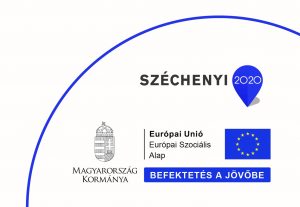
 https://www.bouncebackathletes.eu
https://www.bouncebackathletes.eu
www.facebook.com/bouncebackEU/
www.linkedin.com/company/bounceback-athletes/
Partnership led by the Faculty of Business and Economics of the University of Pannonia won the grant titled BOUNCEBACK ‘Developing an innovative learning approach to facilitate the integration of veteran/retired athletes into employment, business and entrepreneurship’ in the frame of Erasmus+ announced by the European Committee in 2020.
The European Union provides a grant of EUR 230,158 for the implementation of the project for the period: 1st October 2020 – 30th September 2022.
The University of Pannonia leads the strategic partnership project collaborating with AEK Athletic Club, A.S.D. Società Sportiva Lazio Karate, Militos Consulting S.A., R&DO LIMITED, University and Student Athletics Club of Veszprém (VEDAC).
OBJECTIVES AND DELIVERABLES
The project’s main objective is to develop an innovative training approach for veteran athletes that will transfer the skills veteran athletes acquired during their sports career into skills useful for their success in the entrepreneurial and business world, and provide targeted support for veteran athletes who aim to become successful professionals in the labour market or entrepreneurs. This objective encompasses the following 4 specific objectives:
- Match-make the mind-set, attitude, skills, competences of veteran professional athletes (of all different types) with the needs businesses have in soft skills in different sectors of the economy and develop guidelines on how the transfer of skills can take place from sports to other sectors.
- Develop the learning materials and instruments that veteran athletes will use to transfer their skills to their new careers.
- Ensure the practical hands-on applicability of the approach through pilot training sessions.
- Develop policy recommendations to ensure the wide diffusion of the approach in the EU.
INNOVATIONS – Innovative Aspects of the Project
The innovative character of the project can be discovered in four main milestones:
Firstly, the development of an innovative tool and an innovative methodology by providing research-based guidelines for employment and entrepreneurship tailored to veteran athletes, that is based on the transfer of skills already acquired and not entirely new ones, thus ensuring an entry into the business / entrepreneurial world.
Secondly, achieving an adaptation of the EntreComp framework for acquiring key competences for business careers/entrepreneurship for the world of sports and veteran athletes in particular who have the special characteristic of facing the challenges of retirement at a very early age and comprise an often overlooked yet steadily rising section of the EU workforce.
Thirdly, it develops a training approach based on the EntreComp framework tailored to the needs of veteran athletes for the first time, and taking into account the practical relevance of the training provided, it adapts the EntreComp framework for job seeking veteran athletes, and at the same time furthers an entrepreneurial mindset among citizens, and develops practically relevant specifications for the EntreComp learning outcomes.
Fourthly, it is innovative due to the absence of policy recommendations directly addressing the needs for professional development of veteran athletes in ways that transfer the skills they acquired in sports to other sectors.
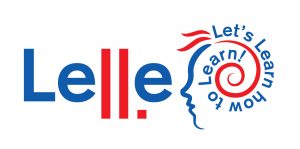 lelle2.gtk.uni-pannon.hu
lelle2.gtk.uni-pannon.hu
www.facebook.com/lelleproject
https://www.linkedin.com/company/lelleproject
Consortium led by the Faculty of Business and Economics of the University of Pannonia won the grant titled ’LELLE2 – Let’ learn how to learn! – Learning skills development for secondary school students’ in the frame of Erasmus+ announced by the European Committee in 2018. The European Union supports the project number 2018-1-HU01-KA201-047839 with €297.386 starting on September 1st, 2018 planned ending on December 31st, 2020. The University of Pannonia leads the strategic partnership project collaborating with Eszterházy Károly University – Hungarian Institute for Education Research and Development (Hungary), the Statny Pedagogicky Ustav (Slovakia), the Cirkevná spojená škola MARIANUM (Slovakia), Liceul Teoretic „Téglás Gábor” (Romania), Kuressaare Gümnaasium (Estonia), and the I. Béla Comprehensive School, Dorm and Primary School from Szekszárd (Hungary).The LELLE2 project idea came from the success of ERASMUS+ project LELLE which focused on the research, measurement and development of learning skills (managing own learning process, critical thinking, problem solving). In order to be successful during the higher educational studies or finding a job factual knowledge is not enough, certain additional soft skills are also needed.
These key competences are not taught in the institutions so that secondary students need to acquire these skills themselves. The main objective of our project is to provide secondary school students with learning skills development and to equip them with skills that can be used on the job market and in the secondary and higher education.Objectives of the project:
• promote innovative methods and pedagogies, create new teaching methods and tools in secondary education
• support the professional development of educators (teachers, mentors), especially in dealing with use of new teaching methods and tools
• supporting individuals in acquiring and developing key competences in the field of learning skills in order to foster employability, socio-educational and personal development
• development of relevant and high-quality skills and competences through creation of innovative outputs:
o Best Practice Collection on Learning Skills Development
o How to Teach How to Learn – teachers training in secondary schools
o Learning skills assessment of secondary school students
o Pedagogical materials for learning skills development
o European Learning Skills Development Gateway (website
• disseminate outputs to stakeholders relevant in the field of learning skill development
• develop long-lasting partnerships between learning institutions and education support bodies, with a view to promote lifelong learning through producing state-of-art educational materials and creating further collaborations that will serve the same goal.
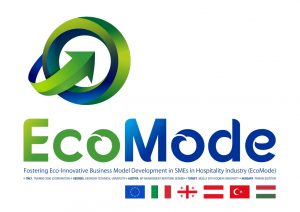 http://eco-mode-project.eu/?page_id=644&lang=hu
http://eco-mode-project.eu/?page_id=644&lang=hu
https://www.facebook.com/Ecomodeproject
The “EcoMode – Fostering Eco – Innovative Business Model Development in SMEs in Hospitality Industry” is an Erasmus+ strategic partnership project. The project contributes to the promotion of eco-innovative business model training programs to become a sustainable part of the hospitality industry. EcoMode foresees to improve the quality of training of professionals in Eco-innovative Business Management through flexible, transferable innovative learning outcomes and design of a new learning pathway based on competence development. The project’s main aim is to create framework conditions regarding Eco-innovation business models for SMEs in the hospitality industry in partner countries and to combine existing best practices to develop a standard practice to be used as a training methodology and certification. The EcoMode project primary target group are trainers in VET organizations, who will train managers and companies in the hospitality industry on eco-innovative business models.
Partners:
Training 2000
Bit management Tanácsadó Kft.
Muğla Sıtkı Koçman Egyetem (MSKU)
Grúz Műszaki Egyetem
Ankara Hacı Bayram Veli Egyetem
Pannon Egyetem
- TÁMOP-4.1.2.A/1-11/1-2011-0088 – Eastern-European Logistics Centre of Hungary – E-learning development of an innovative training in logistics
- TÁMOP-4.2.2.A-11/1/KONV-2012-0064 – Regional effects of weather extremes resulting from climatte change and potential mitigation measures in the coming decades
- TÁMOP-4.1.2.D-12/1/KONV-2012-0017 – The Development of Foreign Language Training at the University of Pannonia
- TÁMOP-4.2.3-12/1/KONV-2012-0026 – Acknowledgement and dissemination of scientific results at the University of Pannonia
- “Recultivatur” Elaboration of a tool for the inclusion of religious-related cultural values in the planning and development processes of urban centres, systems of settlements and surrounding rural areas
- FESSUD 266800 – Financialisation, economy, society and sustainable development
- Programme for the talented students of the University of Pannonia
- E-learning SOlutions for Vet
- Search engine and browser development for exploring related tourism services and their combined purchasing
- Supporting workshops at the University of Pannonia
- Young people for the development of local economy (Hungary-Croatia IPA Cross-border Co-operation Programme 2007-2013)
- Informatics, Innovation, Incubation & Crossborder Clustering (Hungary-Croatia IPA Cross-border Co-operation Programme 2007-2013)
- Information- and training eco-centre for supporting SMEs’ development and the development of their products, processes and services and sales
- “5 Stagecoaches” regional, innovative tourism development program (Operational Programme – Cross-border Cooperation Slovenia – Hungary 2007-2013)
- Development of Student Trainee Exchange Program Methodology for the Hungarian – Croatian Cross Border Region (Hungary-Croatia IPA Cross-border Co-operation Programme 2007-2013)
- Innovative Marketing, Management and Funding Strategies in Practice for Event Organisers (Hungary-Croatia IPA Cross-border Co-operation Programme 2007-2013)
- Connecting and Multiplying Pannonian University Spaces (Hungary-Croatia IPA Cross-border Co-operation Programme 2007-2013)
- Four towers – virtual route of history, culture and tradition linking the area between Nagykanizsa, Kaposvár, Koprivnica and Čakovec (Hungary-Croatia IPA Cross-border Co-operation Programme 200






